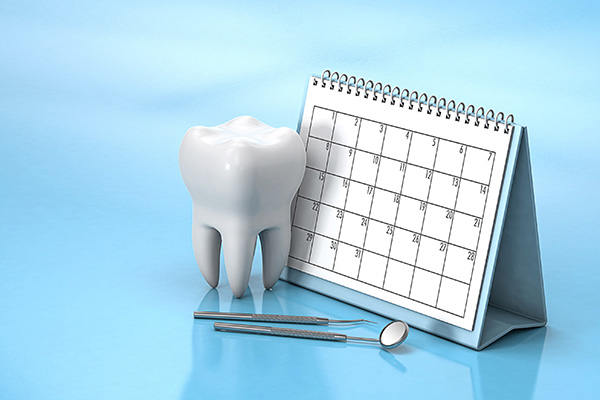Ways Dental Sealants May Cause Cavities

When it comes to keeping your teeth and gums healthy, prevention is the key. In addition to routine brushing and flossing, dental sealants are often used to prevent tooth decay from developing in the molars towards the back of the mouth. While they are often recommended for children, adults can also receive sealants, especially if they are prone to tooth decay or have deep grooves in their teeth.
For most people, dental sealants are very beneficial. According to the American Dental Association, dental sealants have been shown to reduce tooth decay in molars by as much as 80%. This is significant, as many people will develop at least one cavity during their lifetime. Even so, some people have concerns about sealants and whether or not they cause more harm than good.
Can dental sealants cause cavities?
Although sealants are designed to prevent tooth decay, in some situations, they can actually lead to serious cavities. However, this is rare. There are mainly two scenarios in which sealants can contribute to tooth decay.
Improper placement by a dentist
Before a sealant is placed, the tooth must be thoroughly inspected and cleaned. Placing a sealant over a tooth when undetected bacteria or decay are present will lead to serious cavities over time; they may also go unnoticed until they are severe because the sealant can help protect against the sensitivity that often develops early on in tooth decay, signaling a problem to the patient.
For dental sealants to be effective, they must form a tight seal against the surface of the tooth and not allow any gaps for food particles or bacteria to pass through. If a dentist does not ensure a perfectly tight fit during placement, the openings could cause cavities to form around or under the sealant.
Fortunately, these situations are rare, as dentists are typically well trained and experienced in how to properly place a dental sealant. Researching and seeking out reviews can help people avoid practices that have developed a reputation for poor dental work.
False sense of security in a patient
While dental sealants can certainly help prevent cavities, there are no guarantees. They also do not eliminate the need for routine dental care, including:
- Brushing twice a day with a fluoride toothpaste
- Flossing once a day
- Limiting foods that are high in sugar or acid
- Seeing a dentist at least twice a year for professional cleanings
- Avoiding habits that can damage teeth and gums and increase the risks for decay, such as smoking, bruxism, and chewing on foreign objects
Some patients who receive dental sealants may no longer see the need to take care of their teeth to prevent tooth decay. Without proper home care and healthy habits, though, cavities can still develop and likely will at a very rapid pace. It is also important to remember that sealants only protect the tooth surface on which they are placed. Typically, they are not used on the cuspids, incisors, or bicuspids. They do not offer protection between teeth or along the gum line. All of these areas are still just as susceptible to cavities as before.
How can dental sealants protect teeth?
When properly placed and combined with a healthy dental routine, sealants can protect the teeth from developing cavities by sealing off the deep grooves in a tooth. These pit-like structures are notorious for trapping food particles and bacteria, which eat away at the enamel and lead to decay. They are also often difficult to clean. By closing them off and creating a more even chewing surface, there are fewer opportunities for cavities to develop.
The dental sealant procedure is painless and very straightforward. The dentist may prep your mouth by placing dental gauze rolls or a dental dam to keep the teeth clean and dry during treatment. Suction may also be used for this purpose.
Once the tooth is inspected, cleaned, prepped, and sanitized, the dentist will place a tooth-colored composite resin material on the deep grooves of the affected teeth. They may use tools to press it in and shape it. Then, a dental light is used to cure the material, allowing it to harden in just a matter of seconds. Finally, the hardened material is shaped or smoothed down as needed.
Conclusion
For many, dental sealants are safe and effective for preventing cavities. In some rare situations, they can contribute to tooth decay without the proper placement or home care. Choosing a reputable dentist and practicing daily dental hygiene can reduce these risks.
Request an appointment here: https://cosmeticdentistdallastx.com or call Lalangas Family Dentistry at (972) 534-6008 for an appointment in our Dallas office.
Check out what others are saying about our dental services on Yelp: Dental Sealants in Dallas, TX.
Related Posts
Besides good oral hygiene and regular dental checkups, dental sealants are another preventive measure that protects the teeth against decay. Tooth cavities or decay remains the most common childhood disease in the United States. Despite the importance of dental sealants, many parents do not know about their purpose and how they work to protect a…
In many situations, dentists successfully utilize dental sealants to protect a patient's teeth from harmful decay. This simple preventative treatment is typically recommended for younger children but can also be helpful for adults as well. In fact, some dental professionals suggest sealants for adults with healthy teeth approaching middle and advanced age. While a wide…
Children need every preventive measure available to keep their oral health in top condition, which can include dental sealants. When it comes to children’s dental health, tooth decay remains the leading problem affecting children. The dentist uses dental sealants to protect a child’s teeth from the harmful effects of cavities. Continue reading to find answers…
Looking for information on preventive dentistry? Read on to learn more. A good preventive dentist can save you money on significant tooth problems, pain, and costly treatments in the future. All treatments or procedures that prevent tooth decay, tooth damage, and gum disease fall under preventive dentistry. Fortunately, when preventive dentistry is incorporated into daily…


